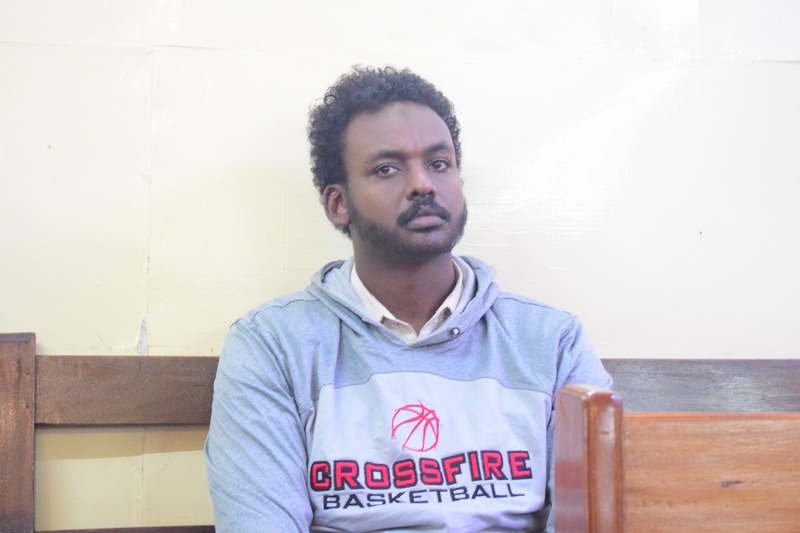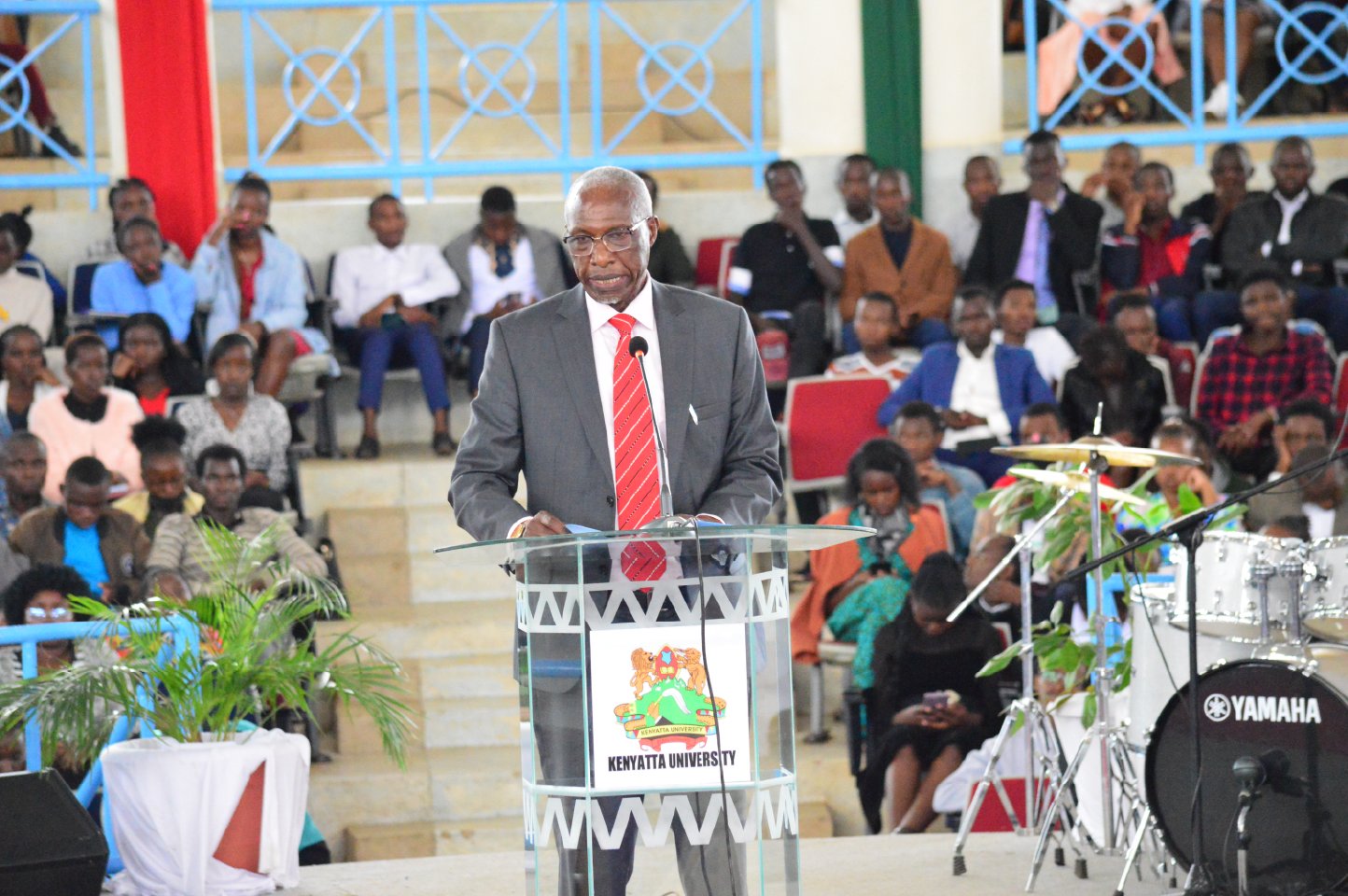Pastoralists in Wajir replenish grazing lands with grass reseeding initiative
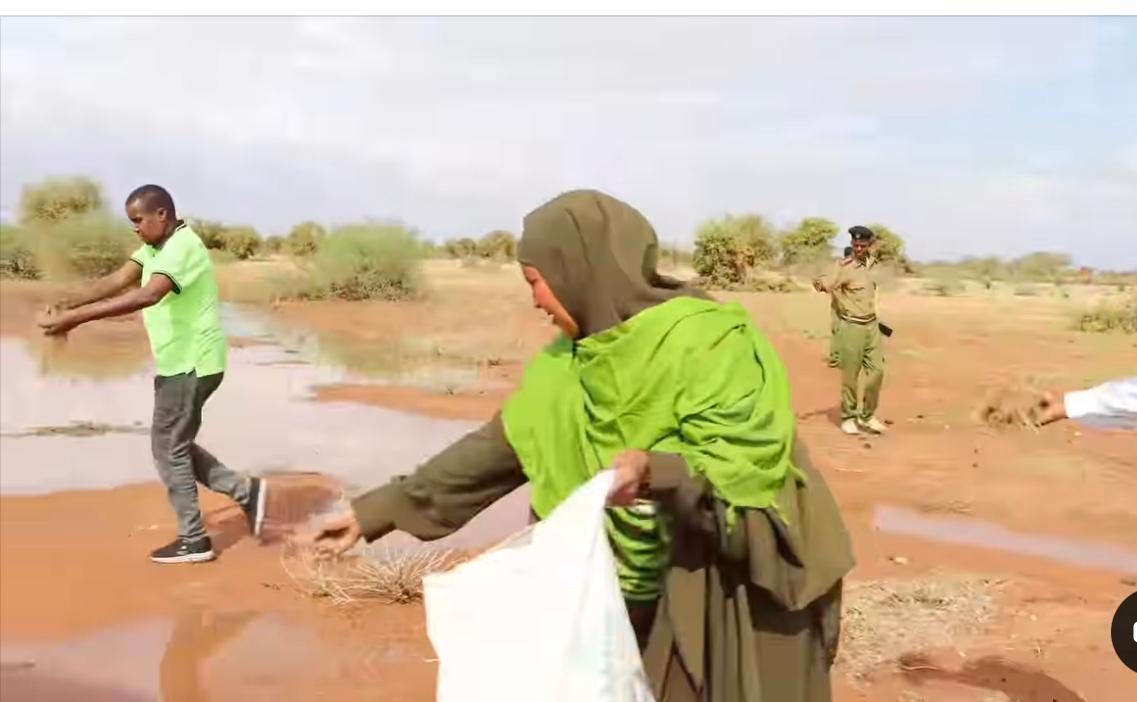
Hassan Aden Abdi said the reseeding programme would help provide sufficient forage for their livestock, which had grown weak during the prolonged drought
Pastoralist communities in Wajir County have launched a rain-fed rangeland reseeding initiative aimed at replenishing depleted soil seed banks and promoting forage for their livestock. This follows a week of heavy rains in the region after an extended dry spell.
Hassan Aden Abdi, a member of the community rangeland management committee in Qanyurey village, said the reseeding programme would help provide sufficient forage for their livestock, which had grown weak during the prolonged drought that left Wajir in the drought alert phase for the past three months.
More To Read
- Wajir MCAs demand answers over rising abductions after two men vanish
- Wajir police nab suspect with AK-47 rifle in ongoing crackdown on illegal firearms
- Senate Bill proposes five-year jail term, Sh2 million fine for livestock thieves
- New 1MW generator boosts Wajir’s power supply, promises relief from frequent blackouts
- Stakeholders warn of increased FGM cases in Wajir during long school holiday
- Rift Valley fever: What it is, how it spreads and how to stop it
"We have received grass seeds from Mercy Corps, and with the rains beginning last week, we realised this is the best time to reseed our depleted pasture lands," he said.
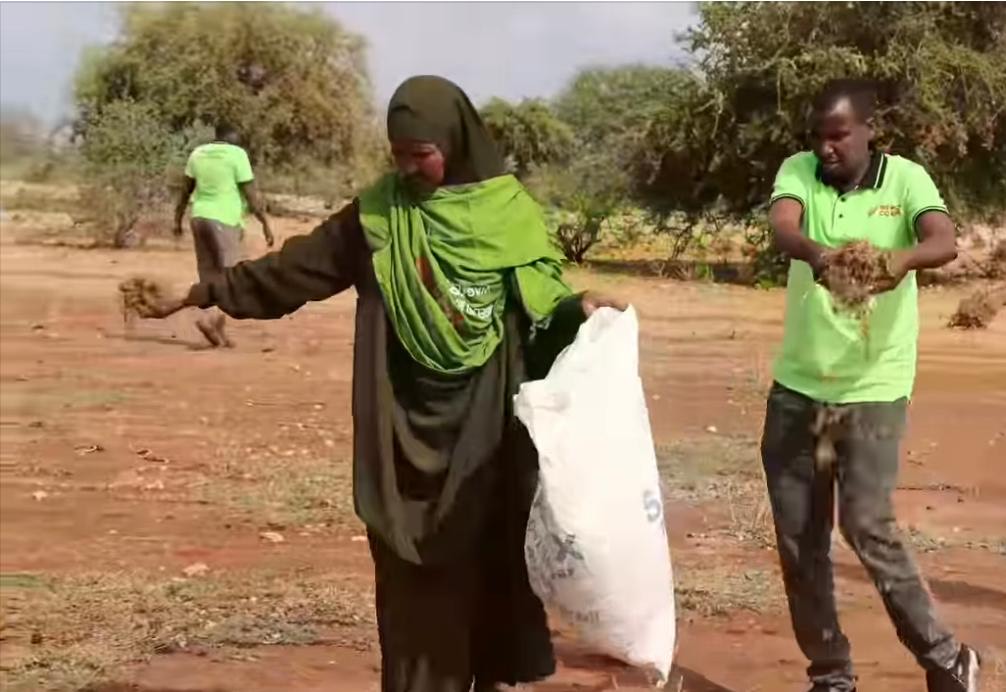 Community members undertaking a rangeland rain-fed reseeding at Qanyurey in Wajir on Wednesday. (Issa Hussein)
Community members undertaking a rangeland rain-fed reseeding at Qanyurey in Wajir on Wednesday. (Issa Hussein)
He noted that the community had been sensitised about the project, which was driven by the dwindling availability of pastures due to the effects of climate change.
Halima Abdi, another committee member tasked with mobilising the community for the reseeding exercise, expressed concern about how their grazing land, once abundant with grass during the rainy season, had become barren.
"Due to increasing population, frequent droughts, and overgrazing, there has been a significant reduction in grazing areas. The natural grass that used to grow abundantly during rainfall has drastically declined over the past five to six years," she explained.
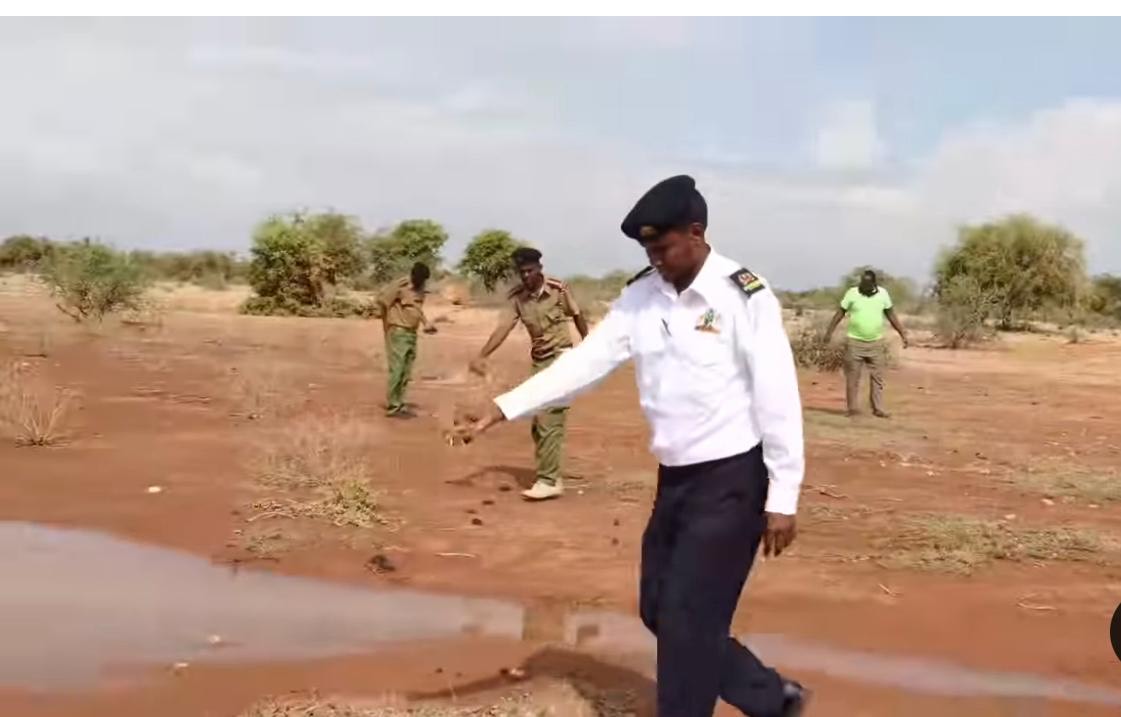 Wagalla Ward County Administrator Abbey Yussuf undertaking a rangeland rain-fed reseeding at Qanyurey in Wajir on Wednesday. (Issa Hussein)
Wagalla Ward County Administrator Abbey Yussuf undertaking a rangeland rain-fed reseeding at Qanyurey in Wajir on Wednesday. (Issa Hussein)
Abbey Yussuf, the county administrator for Wagalla Ward, highlighted how the rain-fed reseeding would restore pasture lands with depleted soil seed banks to support livestock forage.
"Today, we have mobilised the communities in Wagalla and Qanyurey, and we are extending the reseeding initiative to other villages facing challenges with depleted natural pastures. The community is eager to participate since livestock keeping has been their traditional livelihood," he said.
He added that the grass seeds being used were indigenous species familiar to the local pastoralist communities.
However, Abbey noted that the grass seeds provided by the organisation were insufficient due to the high demand from communities willing to undertake the reseeding programme. He appealed for additional support from the government and non-governmental organisations to expand the initiative.
Top Stories Today











